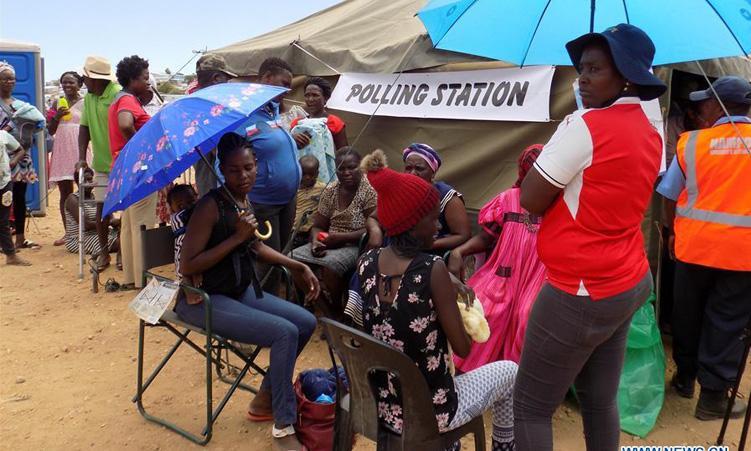Africa-Press – Namibia. As namibians prepare to go to the polls this week, it is important for the public to have a clear understanding of the nature, purpose and significance of the regional council and local authority elections.
These elections, though often overshadowed by national or presidential contests, are the backbone of decentralised governance in Namibia and shape the day-to-day lived experience of communities across the country.
The elections taking place will be preceded by the special vote of members of the security cluster and polling officers today, with the rest of the nation voting on Wednesday.
The election consists of two distinct processes.
First, voters will elect regional councillors who represent constituencies at the level of regional government.
Namibia is currently divided into 121 constituencies, and each constituency elects a single councillor through a first-past-the-post voting system.
The candidate with the most votes wins. These councillors collectively form the regional council of each of the 14 regions, and they are responsible for regional development planning, oversight of constituency-level service delivery, the coordination with government ministries, and the administration of constituency development funds.
Regional councils also elect three of their members to sit on the National Council, Namibia’s upper house of parliament, meaning the outcome of regional elections has direct implications for national lawmaking.
Alongside these elections, voters will also participate in local authority elections, which determine the composition of municipal, town and village councils across the country.
Unlike regional council elections, local authority elections operate through a party-list proportional representation system.
Citizens vote for political parties, not individual candidates.
Seats are then allocated to parties based on the proportion of votes they receive. The size of each council varies: Municipalities generally have between seven and 15 councillors, towns between seven and 10, and villages typically have five.
Once constituted, these councils elect their own leadership, including mayors, deputy mayors and management committee members.
SERVICE, DEVELOPMENT
Combined, these elections determine the composition of the governance structures responsible for the delivery of essential services and the development trajectory of towns, cities, villages and regions.
Local authorities handle water supply, electricity distribution, sanitation, waste management, allocation, building plan approvals, business licensing, local roads, community infrastructure and, in some municipalities, public transport systems.
These are the services the public interacts with every day, making the performance of local leadership central to community well-being.
Regional councils also play a pivotal role in shaping rural development, agricultural support and infrastructure initiatives.
Their work determines whether rural communities experience meaningful progress or prolonged stagnation.
Because councillors are directly accessible to residents, these structures constitute the most immediate and responsive layer of political representation in the country.
In recognition of the importance of these elections, the president has declared the polling day a public holiday to facilitate maximum voter participation.
VITAL OPPORTUNITY
This is a vital opportunity for citizens to choose leaders who will directly influence the quality of service delivery and development in their communities.
Whether one resides at Oniipa, Windhoek, Walvis Bay, Katima Mulilo, Rundu or Lüderitz, the decisions made this week will impact core aspects of daily life: the condition of local roads, the efficiency of land delivery, the management of informal settlements, the reliability of water and electricity, the speed at which building plans are approved, and the overall effectiveness of service delivery. These elections will determine the strength of decentralised governance and the future of community development.
As Namibia enters this important democratic moment, it is essential for all eligible voters to participate with a full appreciation of how consequential these elections truly are.
Regional council and local authority elections are not merely administrative exercises; they shape the future of communities, determine the trajectory of development and ensure that governance remains responsive and accountable at the level closest to the people.
Your vote in these elections matters profoundly. It is a direct investment into the kind of community you want to live in and the kind of future you want for your region and your country.
– Nambili Mhata is a legal practitioner of the High Court and Supreme Court of Namibia.
For More News And Analysis About Namibia Follow Africa-Press






